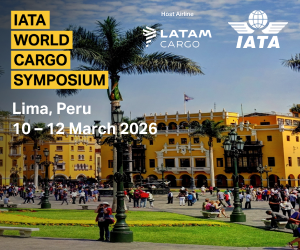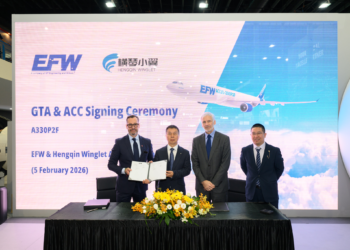Logistics Leaders Unite to Unveil a Future Defined by Automation, Trade Agility, and Infrastructure Reform
Birmingham, UK – Multimodal 2025 opened its doors to record-breaking attendance and a bold message: the UK logistics sector is entering an era of digital transformation, driven by artificial intelligence, autonomous systems, and resilient trade architecture. Held at the NEC from 17–19 June, this year’s event is the largest in its history, bringing together over 275 exhibitors, 100 speakers, and 71 high-impact conference sessions, placing it at the strategic heart of the UK’s £124 billion logistics industry.
The tone was set early with keynote sessions focused on connectivity, emissions, and emerging trade challenges, while the exhibition floor pulsed with real-time demonstrations of AI-enabled warehousing, automated vehicle fleets, and next-generation customs solutions.
Multimodalism and Emissions: Unlocking UK’s Connectivity Puzzle
Day one’s centrepiece, “Unlocking the UK Connectivity Puzzle”, saw Maersk UK Managing Director Gary Jeffreys call for cohesive cross-modal strategies. He stressed that the UK’s size and agility give it unique potential to lead in sustainable logistics.
“Over the past two years, we’ve seen a surge in customers looking to work with us as true partners on decarbonisation,” Jeffreys noted. “But each mode brings its own bottlenecks—whether it’s energy grid capacity or generational workforce gaps.”
Echoing this, Tim Morris, Group Head of Communications at Associated British Ports, warned that logistics remains the “poor relation in UK transport planning,” with major infrastructure projects suffering from protracted timelines and steep costs.
AI Takes the Stage: From Theory to Freight Reality
In a packed panel chaired by Samantha Brocklehurst (Maersk), titled “How Artificial Intelligence is Transforming Multimodal Logistics,” speakers outlined how AI is moving from concept to real-world implementation.
Dawn Rasmussen, CEO of Problems Solved, pointed to AI’s real-time impact:
“The automation of bookings, rate quotations, and exception handling is already saving operators time and money. Where incident resolution might take hours or days, AI delivers outcomes in minutes.”
James Coombes, CEO of Raft, positioned AI as a critical tool for unifying operational standards:
“AI functions like a Rosetta Stone for logistics. It translates free-form human data into machine-readable formats that sync with existing operational protocols.”
Meanwhile, Adnan Zaheer, CEO of iCustoms, highlighted the immediate business case:
“The low-hanging fruit is clear—AI drastically reduces time and manpower costs for repetitive compliance tasks and customs declarations.”
Global Trade Headwinds and Local Bottlenecks
A recurring theme throughout the day was trade friction and policy uncertainty. With a resurgence of protectionist rhetoric out of Washington and growing instability in key global corridors, many UK operators are bracing for volatility.
Nicolas Collart of Customs Support Group addressed the potential impact of a second Trump presidency on trade dynamics:
“The UK was among the first to lock in a trade agreement with the US post-Brexit. But the next phase will require faster execution and diplomatic agility to protect freight interests.”
The session “UK Trade and Logistics Performance”, led by Phil Roe, President of Logistics UK, revealed new research showing a decline in UK logistics performance—a drag on national productivity.
“We are being held back by border friction, congestion, workforce shortages, outdated regulations, and a fragmented patchwork of urban policies,” said Roe. “This isn’t just a logistics problem—it’s an economic one.”
Industry Commitment to Innovation and Resilience
Multimodal 2025’s opening day featured expert insights from the likes of Maritime Transport, DHL, DP World, CEVA, Hapag-Lloyd, Peel Ports, MSC, Kuehne+Nagel, and Ocean Network Express, illustrating the breadth of innovation and collaboration across modes.
Event Director Robert Jervis summed up the day’s impact:
“What we’ve seen today is a sector not just reacting to change but driving it. Whether it’s AI integration, multimodal connectivity, or trade reform, this industry is forging a path through complexity with creativity and purpose.”
Looking Ahead: Recognition and Collaboration
The day concluded with the Multimodal 2025 Awards, held at the VOX and hosted by Martin Bayfield, celebrating excellence across air, road, rail, sea, and freight forwarding. The awards highlighted both innovation and long-term service excellence, reinforcing the industry’s commitment to both transformation and reliability.
As Multimodal 2025 continues, attention now turns to sustainability roadmaps, digital compliance, and global network resilience—defining topics for a sector at a pivotal crossroads. If day one is any indication, the UK logistics industry is ready to lead from the front.





